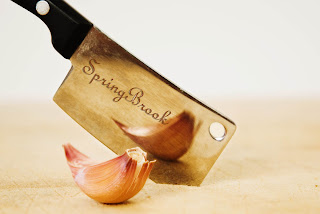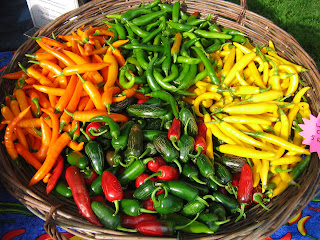Slow food Slow Marlborough
Slow Food Marlborough was formed 24 months ago in Marlborough.
Since then we have visited food producers all around the region and tasted, learned, shared and enlightened ourselves about what is in our back yard.
Many of these producers are now good friends, and I know their families, their hardships and their successes. Mother Nature controls all of them like puppets on a string, for she has the ultimate say over the wind, rain, hail and sunshine. Just when you think you have it right in the food production industry, something comes along and you soon realise that there is no easy way, just her way.
What's this got to do with slow food, and why does it matter? Simple – New Zealand imports more food than almost any other OECD country. Up to 40 per cent of what we see on the shelves is imported. We import 16,000 tonnes of pork product, 30,000 tonnes of meat and 18,000 tonnes of Chinese garlic, yet we export the majority of our homegrown crops and bounty from the sea.
We import Australian salmon and sell it cheaper than the equivalent New Zealand-produced product. And why do we send fish caught in our waters to China to be filleted and processed, then delivered back to our supermarkets and fish and chip shops?
Slow Food is not going to be able to digest all of the whats, ifs and hows of food production. That will take a generation of changes in attitude and business models that are driven by exporting for maximum returns, and importing to keep the cost of food as low as possible.
We need to celebrate our growing seasons as much as we celebrate our sporting heroes. We need to say, `I don't need that tomato in the middle of winter – it's round and it's red, but bears no resemblance to what a tomato tastes or should be like".
We have a generation being bought up to believe that tomatoes have no flavour, that apples are crisp but not juicy, and that strawberries are tart but not sun-kissed.
Slow food is not about making short-term changes. It is about understanding what is going on around us in our communities, celebrating our uniqueness and culture, and embracing our aquaculture, pipfruit, viticulture and stonefruit producers and making them the heroes of the dinner table. It is about putting the spotlight on what is good in our region, what is the tastiest, and what is the real backbone of a community. It is the people who live, work and thrive without having to depend on a tart, tangy, hard strawberry fix from some faraway place
VegetABLE SOUP WITH MARLBOROUGH GARLIC AND GARDEN HERBS
1 Tbsp vegetable oil
1 onion, peeled and chopped
8 cloves of Marlborough garlic, crushed
2 carrots, chopped
2 pumpkins, chopped
2 potatoes, chopped
3 sticks celery, chopped
4 tomatoes, diced
2 leeks, sliced
2 parsnips, peeled and sliced
6 cups vegetable stock, or one packet vegetable soup mix with 6 cups water
Garden herbs for garnish
Heat the oil in a saucepan. Sweat the onion, garlic and carrot for 3 to 4 minutes. Add the remaining vegetables and cook for 4 to 5 minutes, then add the stock and simmer gently for 15 minutes or until the vegetables are tender.
Puree with a stick blender, mash with a potato masher, or blend in a food processor, but make sure you keep some of the texture.
Serve piping hot with crusty bread in deep bowls with lots of freshly cut garden herbs on top.



Comments
Post a Comment